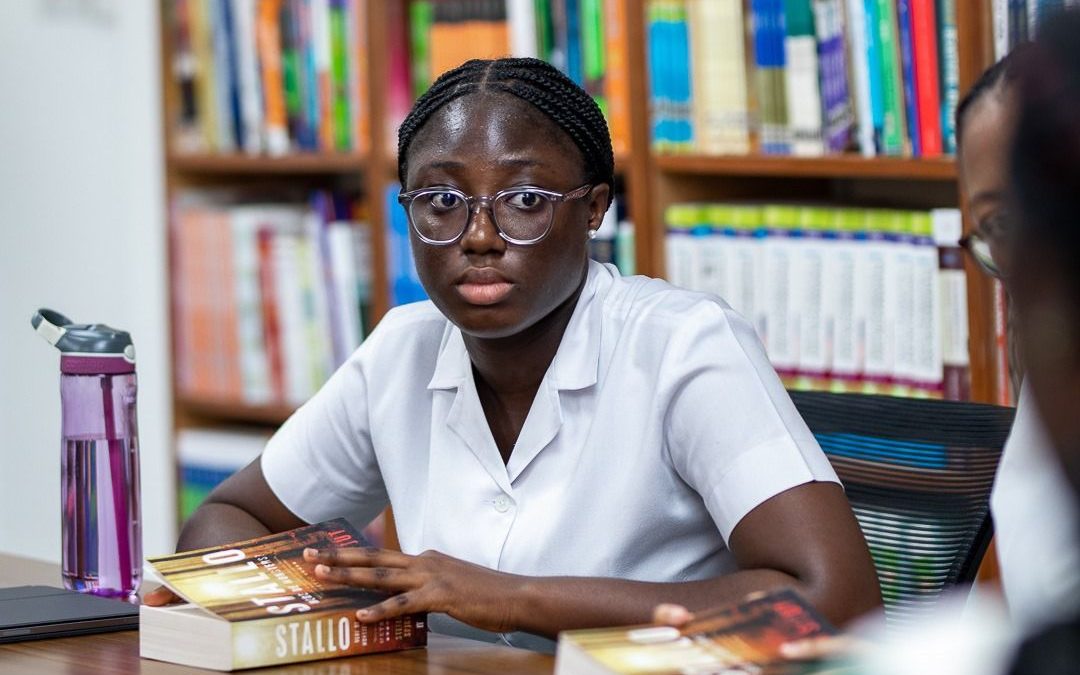- Login to ASPnet | Ghana Commission for UNESCO | Government Agency Responsible for the coordination of Ghana's contributions to and presence at UNESCO
Call for nominations: 2024 Edition of the UNESCO Prize for Girls’ and Women’s Education

The 2024 call for nominations will close on 24 May
The UNESCO Prize for Girls’ and Women’s Education honours outstanding and innovative contributions made by individuals, institutions, and organizations to advance girls’ and women’s education. It is the first UNESCO Prize of this nature and is unique in showcasing successful projects that improve and promote the educational prospects of girls and women and in turn, the quality of their lives.
Funded by the Government of the People’s Republic of China, the Prize is conferred annually to two laureates and consists of an award of US $50,000 each to help further their work in the area of girls’ and women’s education. The Director-General of UNESCO awarded the Prize for the first time in 2016.
Selection process
The 2024 call for nominations will close on 24 May.
- View the explanatory note (with sample nomination form) which also contains the selection criteria.
Who can nominate?
Governments of UNESCO Member States via their Permanent Delegations to UNESCO and Non-Governmental Organizations (NGOs) in official partnership with UNESCO can make up to 3 nominations. Self-nominations are not accepted.
Who can be nominated?
Individuals, institutions, or organizations advancing girls’ and women’s education are eligible for nomination. Nominations must focus on an established project or programme of the candidate, which has been running for at least two years, and meets the selection criteria.
How to be nominated?
Self-nominations are not accepted. If you, your institution, or organization meet the selection criteria, please contact your country’s National Commission to UNESCO or a relevant NGO in official Partnership with UNESCO.
Please check the Prize’s explanatory note for more information.
How to nominate?
- Nominations can be submitted via the dedicated online platform in English or French by a National Commission or Permanent Delegation to UNESCO of the concerned Member State, or by an NGO in official partnership with UNESCO.
Nominations submitted by a Member State’s National Commission must be validated by the Permanent Delegation.
nominations from an NGO in official partnership with UNESCO must be validated by the organization’s headquarters. Nominations from country branches or affiliated offices will not be accepted. - National Commissions and Permanent Delegations to UNESCO may access the online submissions platform through their official UNESCO account using the following link: http://unesco.org/gwe.
NGOs in official partnership with UNESCO will be granted direct access to the online platform by the Secretariat upon request. To request access, please contact GWEPrize@unesco.org. - Member States and NGOs in official partnership may request that candidates complete the online nomination form directly.
Access to the platform will be granted to candidates by the Prize Secretariat upon request from the nominating entity (National Commission, Permanent Delegation or NGO in official Partnership with UNESCO). Requests should be sent to GWEPrize@unesco.org by 22 May 2024. Once the online form is completed by the candidate, the nominating entity will be required to review and validate the submission. - Nominations must be submitted via the online platform by midnight of 24 May 2024 (UTC+1, Paris time). Kindly note that a nominating entity (Member State or NGO in official partnership with UNESCO) may not submit more than three nominations.
For any question regarding the UNESCO Prize for Girls’ and Women’s Education or the submission process, please contact the Secretariat of the Prize at the Section of Education for Inclusion and Gender Equality at GWEPrize@unesco.org.
- Launch of the call for nominations (8 March, International Women’s Day)
- Submission of nominations online (8 March – 24 May)
- Meeting of the International Jury (June/July)
- Announcement of the Prize laureates (early October)
- Award ceremony (11 October, International Day of the Girl Child)
Composed of five independent experts, the jury meets once every year to assess nominations for the Prize and presents its recommendations to the Director-General of UNESCO.
- GWEPrize@unesco.org
- Follow us on Twitter at #GWEPrize
